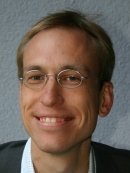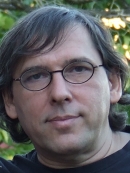EUROPEAN PHILOSOPHY OF SCIENCE ASSOCIATION |
Philosophy of Science in Europe: Switzerland & Hungary
SWITZERLAND
Questionnaire filled in by Claus Beisbart Claus Beisbart is extraordinary professor for philosophy of science at the University of Bern.
Claus Beisbart is extraordinary professor for philosophy of science at the University of Bern.(a) How many (full) professors of philosophy are there in your country (approx.) and how many are philosophers of science?
In Switzerland, there about 35 professorships in philosophy (permanent positions, not counting so-called titular and assistant professorships nor professorships at faculties for theology). Most of them are full professorships (“Ordinariat/professeur ordinaire”). Three professorships (Bern, Genève, Lausanne) mention philosophy of science in their denomination; an additional professorship in philosophy of science is in the state of being filled in Genève. There are a few other professors with interests in philosophy of science.
(b) How would you characterize philosophy of science in your country? For example, is it mainly general or specific (philosophy of physics, psychology, economics, etc.)
There is a strong focus on the philosophies of the special sciences, in particular of physics and biology. Research in philosophy of science is about evenly divided between metaphysics and epistemology of science.
(c) What are the possibilities and chances in your country for external funding in philosophy of science?
The Swiss National Science Foundation (SNF) promotes excellent research in all disciplines. It currently funds a couple of projects in philosophy of science, including “Biological Knowledge through Modeling and Engineering”, “Counterfactual Reasoning in Biology” (both M. Weber, Genève) and “The Metaphysics of Physics: Natural Philosophy” (M. Esfeld, Lausanne). One of the prestigious Sinergia projects has a philosophy of science component (“Grounding – Metaphysics, Science, and Logic”, M. Weber, Genève). Very recently, M. Baumgartner obtained one of the prestigious temporary professorships funded by the SNF at Genève. V. Lam (Lausanne) was recently awarded an Ambizione fellowship. The SNF also supports conferences. There are also a lot of small foundations in Switzerland. The cogito foundation supports projects that help bridge the gap between the natural sciences and the humanities.
(d) Is there in your country a society for philosophers of science and if so, what are its activities?
The Swiss Society for Logic and Philosophy of Science was founded in 1948. It holds an annual meeting. Since 2011, it awards the Paul Bernays Award to young researchers in logic and philosophy of science.
The website www.philosophie.ch provides more information about philosophy in Switzerland.
HUNGARY
Questionnaire filled in by László Szabó László Szabó is professor of philosophy at the Eötvös University in Budapest, and head of the Ph.D. program in Logic and Philosophy of Science
László Szabó is professor of philosophy at the Eötvös University in Budapest, and head of the Ph.D. program in Logic and Philosophy of Science(a) How many (full) professors of philosophy are there in your country (approx.) and how many are philosophers of science?
There are about forty to seventy professors of philosophy in Hungary; the number of philosophers of science is ten to fifteen, depending on the definition of ‘philosopher’ and ‘philosopher of science’.
(b) How would you characterize philosophy of science in your country? For example, is it mainly general or specific (philosophy of physics, psychology, economics, etc.)
About eight to ten professors are working in history and sociology of science. Eleven to thirteen work in analytic philosophy of science (biology: one, mathematics: three, physics: four, social science: one, cognitive science and/or philosophy of mind: two to four). There is one professor who works in formal general philosophy of science.
(c) What are the possibilities and chances in your country for external funding in philosophy of science?
There is no special program for philosophy of science. The following possibilities are available also for the philosophers of science:
- Fulbright Fellowship from USA
- Erasmus program from EU
- OTKA Foundation (Hungarian Research Foundation), for international collaboration with a Hungarian team
- Hungarian Scholarship Board Office, for individual visiting fellowships from abroad.
There is no special society for philosophers of science; there is however a weekly colloquium in philosophy of science in Budapest, active since 1996 (at Eötvös University).